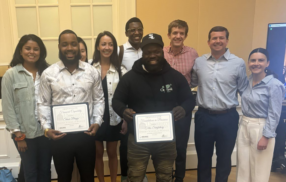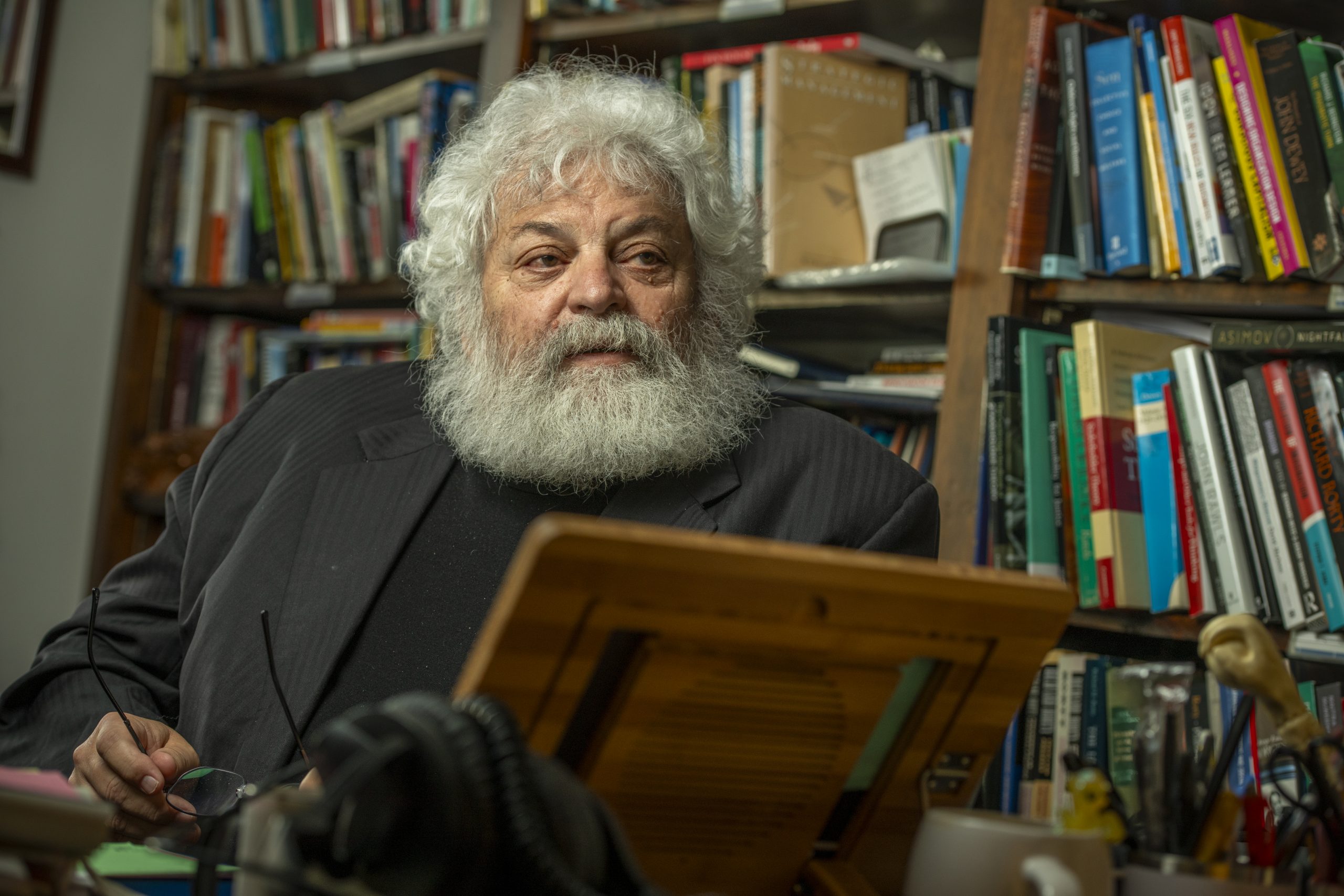
2022 Edelman ‘Trust Barometer’: Business Must Serve as Society’s Stabilizing Force
By Dave Hendrick
In a world awash in distrust, business remains the most trusted of global institutions.
According to the new 2022 Edelman Trust Barometer, the annual report on trust in media, government, business and NGOs from the global public relations firm, government and media are now perceived as fueling a “cycle of distrust,” with business not only the most trusted among the four societal pillars, but the only institution considered trustworthy.
Speaking in University of Virginia Darden School of Business Professor Toni Irving’s “ESG Strategies to Create Competitive Advantage From Wall Street to Main Street,” Edelman CEO Richard Edelman walked Darden students through the latest findings, which show distrust is now society’s “default emotion,” and collapse in trust in democracies in general.
“We see a vicious cycle of distrust between government and media,” said Edelman. “Government trust has fallen substantially.”
The new report shows media and government are both seen as divisive, while business and NGOs are seen as unifiers. In the media space, so called “fake news” concerns are at an all-time high in many countries, including the U.S., and government is no longer seen as capable of solving societal problems.
Edelman said respondents indicated government leaders were incentivized for stoking division, rather than solving problems, and media was thriving on “something between overstatement and disinformation.”
“People want government to take on societal issues but don’t believe government can get it done,” said Edelman.
Conversely, majorities of respondents look to business and NGOs to both take a leadership role in coordinating cross-institutional efforts to solve societal problems and believe that both institutions are able to get results.
The lack of trust comes against a backdrop of rising fears, with large majorities increasingly worried about topics such as job loss, climate change and experiencing prejudice or racism, among other sources of worry.
In seeking specific sources of trustworthiness amid the turmoil, respondents offered a more nuanced outlook. Scientists and “my coworkers” are considered the two most trustworthy groups, for instance, and while “my CEO” is considered trustworthy, CEOs in general are not. A wide partisan gap exists in the U.S., as well, with those identifying as Democrats far more trusting of institutions than Republicans. For the first time in Edelman’s survey, business as an institution is now distrusted by Republicans, for instance.
While business is a relative bright spot in the survey, more than half of respondents believe capitalism now does more harm than good in the world.
The flipside of the grim news on the trust front is the immense opportunity for business to take a leadership role in marshaling positive change.
“The key point for MBAs is that societal leadership is now a core business function,” said Edelman.
All stakeholders now hold business accountable, the report finds, with large majority of people deciding what to buy, where to work and what to invest in based on beliefs and values.
Business leaders are increasingly expected to “walk a tightrope,” Edelman said, with majorities now expecting CEOs to inform and shape policy around issues as the economy, inequality and climate change, and yet stay out of what are considered “politics.” Despite the tightrope, the survey finds people want business to engage more on societal issues, and posits that business lead the way in breaking the cycle of distrust.
Edelman suggested Darden students recognize the gravity of the depth of societal problems they will confront as business leaders, and consider the potential for business to be a stabilizing force. Be vocal forces for change within companies, and consider using talents to join nonprofit community organizations to help them scale, he said.
“Business has got to lead now,” Edelman said. “It’s a big deal, and you have an opportunity and a responsibility.”
The University of Virginia Darden School of Business prepares responsible global leaders through unparalleled transformational learning experiences. Darden’s graduate degree programs (MBA, MSBA and Ph.D.) and Executive Education & Lifelong Learning programs offered by the Darden School Foundation set the stage for a lifetime of career advancement and impact. Darden’s top-ranked faculty, renowned for teaching excellence, inspires and shapes modern business leadership worldwide through research, thought leadership and business publishing. Darden has Grounds in Charlottesville, Virginia, and the Washington, D.C., area and a global community that includes 18,000 alumni in 90 countries. Darden was established in 1955 at the University of Virginia, a top public university founded by Thomas Jefferson in 1819 in Charlottesville, Virginia.
Press Contact
Molly Mitchell
Associate Director of Content Marketing and Social Media
Darden School of Business
University of Virginia
MitchellM@darden.virginia.edu





